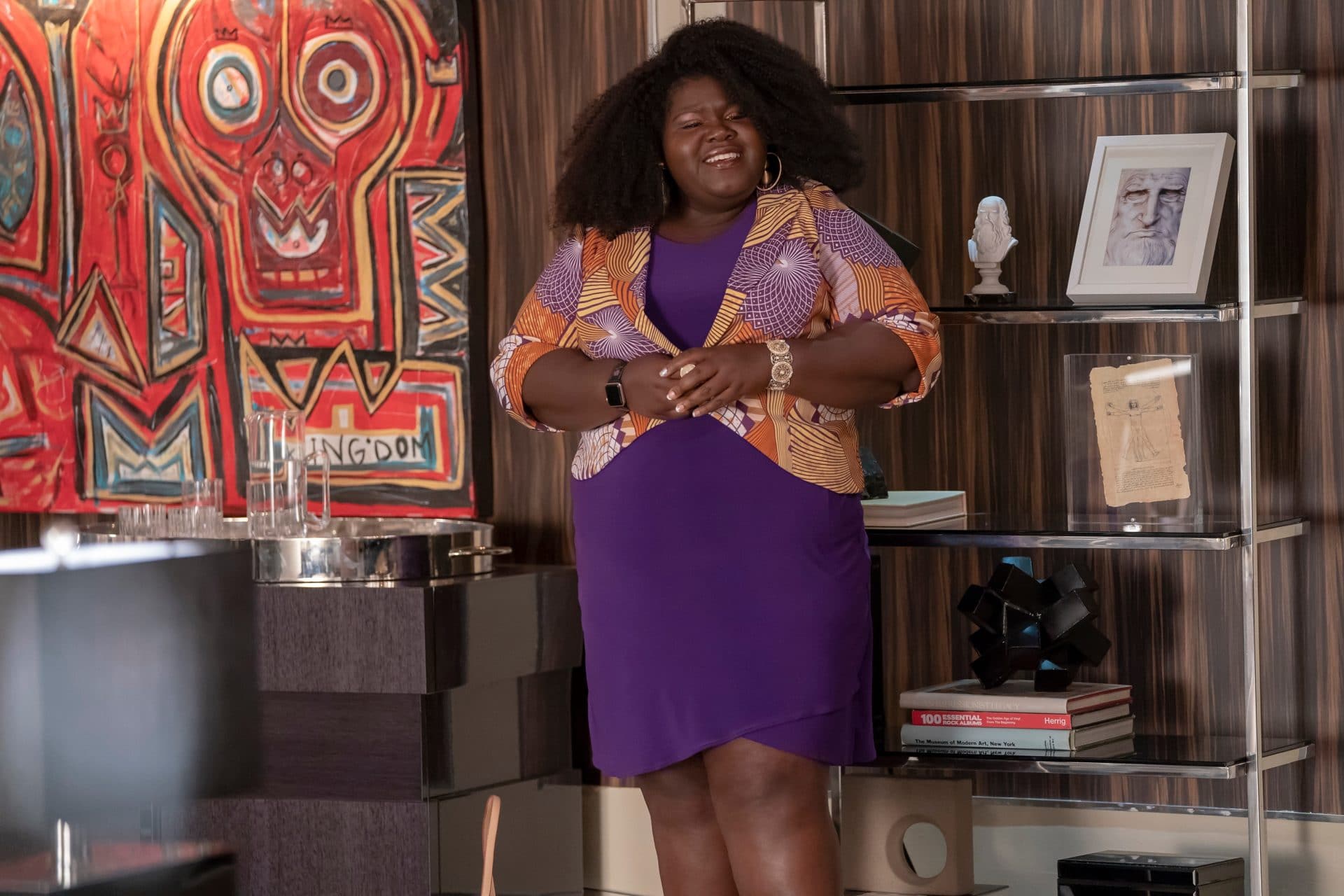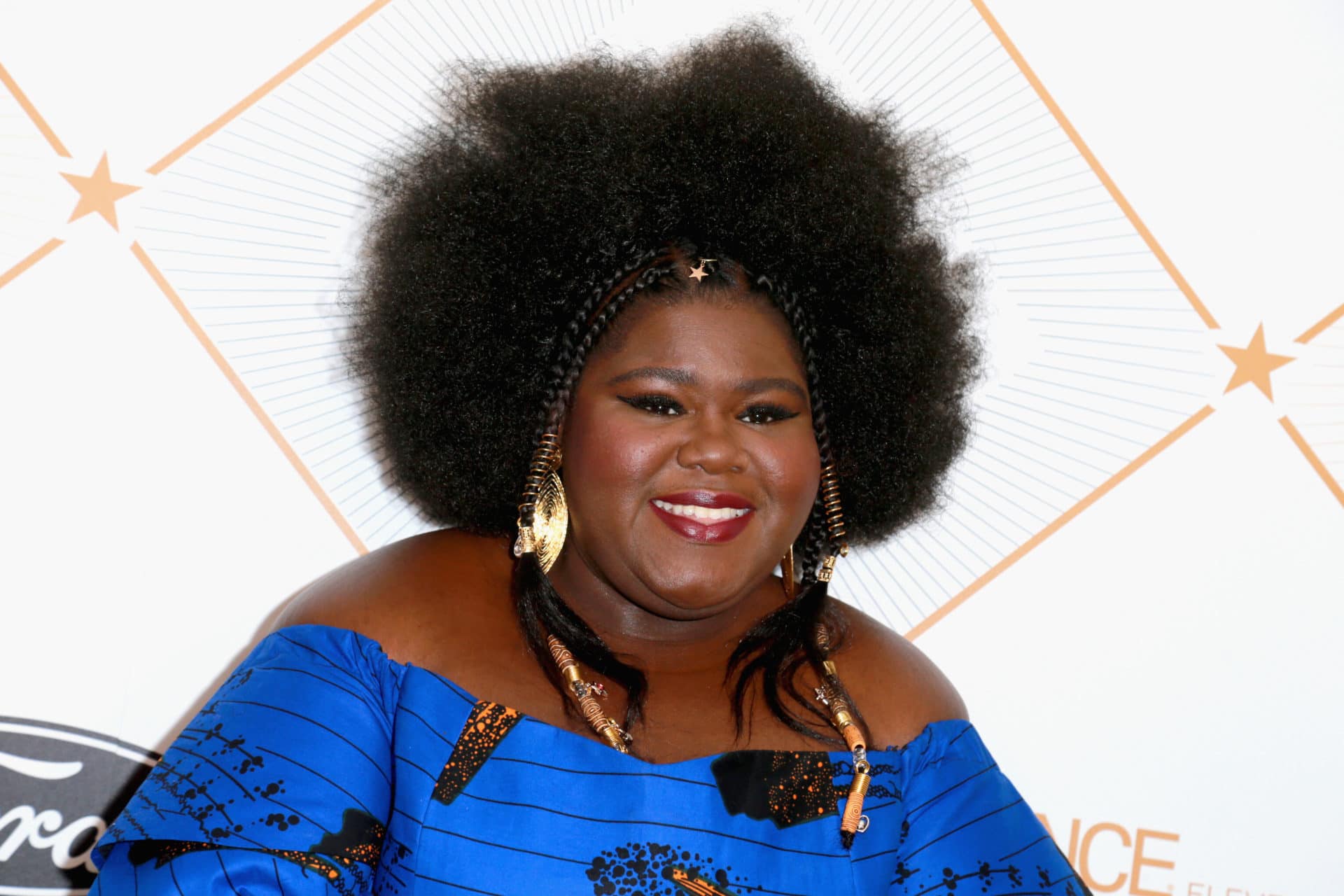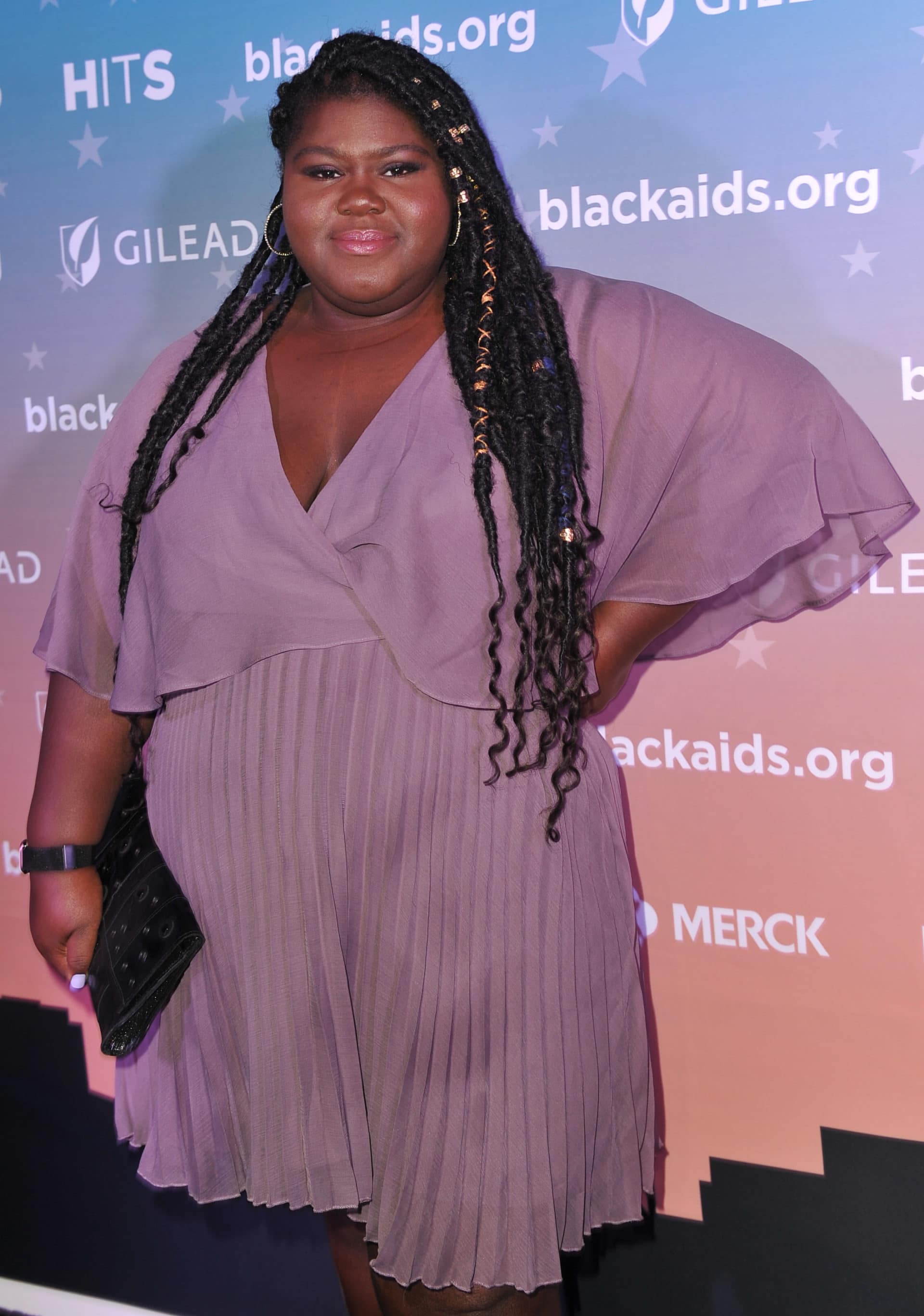It’s been clear since she first appeared on our screens that Gabourey Sidibe was going to do things her way. The award-winning actress has continued to flourish in her career–from acting, to becoming an author, to leading short films and landing the coveted spot of Saturday Night Live host.
After making her mark 10 years ago with Precious, the star made her television directorial debut on this season of Empire, Fox’s megahit that’s now in its fifth season. That feat is more than enough reason to celebrate as opportunities for Black female directors in Hollywood are few and far between. And while we love following her for her comedic timing, the director’s chair is something Sidibe takes very seriously.
“We have directors for hire so we get new directors all the time. And I see the way they’re treated depending on race and gender and experience. I know what fight I’m in for,” she told ESSENCE ahead of the episode’s premiere.
Starring on the show as Becky, it’s not lost on her that Sidibe got to make her debut among family. No matter what level you’re on, Black women have always had something to prove in the workplace.
It’s different if you’re a female and you’re starring in what you are directing. You have to take time for hair and makeup and costumes. And that was just time I didn’t have.
Gabourey Sidibe
“The hardest of seasoned crew might look at me and say, ‘She doesn’t know what she’s doing,'” the actress revealed. “So before they say that out loud, I have to show up and show them harder and faster that I do know what I’m doing. I’m the leader and I’m going to lead us through this whole thing without taking my hands of the wheel.”
The newly-minted director spoke with ESSENCE last Wednesday about her experience going behind the camera for her own show and how Black women and their mentorship has helped her ascend to this new level in her career.
ESSENCE: Today’s a really big day for you. You’re making your TV directorial debut. This is not exactly your first time behind the camera, but it’s your first time directing for TV and on top of that for your own show. What was the difference between directing your short film versus directing an episode of Empire?
Sidibe: Directing my short film, it was like a personal project and it was an original story. So if in the middle of shooting if I decided that something should change, I had the freedom to. But when you’re directing for TV, especially for an established show that’s in its fifth season, there’s kind of a lot of pressure to make sure it looks like the previous episodes. It’s one show so it needs to follow one theme. Also I can’t change things and just fire people all willy nilly. I tried, but they wouldn’t let me. (Laughs)

You’ve been starring on Empire and you’ve been a part of the show’s fabric for so long. How was it stepping out of your role as an actor and stepping into that director seat? What were the different challenges that you faced?
The biggest challenge was getting out of the episode. Becky was supposed to have a cold throughout the entire episode and they were just going to come back to me in bed watching TV. So I had to be like, ‘I don’t know. Do we really need this Becky character this week? I don’t know if she’s adding anything to this episode.’ It’s different if you’re a female and you’re starring in what you are directing. You have to take time for hair and makeup and costumes. And that was just time I didn’t have. So I had to get them to cut me out of the episode so that I could concentrate on directing.
I think so many of us are so hype about this moment because Black women in Hollywood as directors, we’re severely underrepresented.
Two percent of directors are Black women; it’s nuts. Four percent of directors are women, two percent of [those women] are Black women, so we’re extremely underrepresented, but I feel really grateful. I know a few Black women directors that I can call on that have mentored me and let me shadow them like Millicent Shelton (The Flash, Black-ish) and Victoria Mahoney (Power, Grey’s Anatomy), and Sanaa Hamri our executive producer. There’s been a lot of love and mentorship that I’ve been very grateful to be able to have.

Was there anything over the course of directing the episode that surprised you?
We shoot for eight days. As far as production meetings and planning, that can be two weeks of work. And then once the episode is in the can, you have four days to edit it. I remember editing my short film, which is 23 minutes, and we were in editing in two weeks so I couldn’t imagine how I was going to edit this hour-long drama, which is really only 45 minutes, in four days. But it was actually really easy. It kind of made me a smarter director where I’m actually counting the seconds, counting the scenes, I’m counting the minutes while I’m shooting so that once I get to editing, I’m not over so much. So I don’t break my own heart having to cut so many things that I love.
You’re very active on Twitter when the show airs. What do hope the audience gets out of this episode?
I hope they are entertained. I hope that they are entertained on the same level that some of our favorite episodes have entertained me. I also expect for the audience to be mad because audiences be mad — that’s what they do. We are in a ShadeRoom culture. Directing is weirdly a call back to my own life, which might be narcissistic or egotistical, but art is everywhere. Stories are everywhere and everything makes an imprint on me. And sometimes I take those imprints and I remix them and I bring them into fruition in another medium in directing. That’s what I get to do here. I hope people laugh and I hope people gasp.

You are doing and you’ve so many bad a-s things. How has this episode impacted your thinking for what’s next for you?
The budget for my short film was between $60 to $80,000, compared to millions of dollars on one episode [of Empire]. I didn’t know I had the ability to handle that much money. Now that I’ve directed TV, I know how to handle this much money. I know how to handle the crew and how to have them trust me. I know how to make my allies in every department. I know how to treat people. I was very cognizant of thanking people. Every time I gave note I said thank you.
Now when I’m watching TV, I have the ability and the space and the security in my own art to say, ‘I want to direct this show, how do I direct this show? How do I do this? Who do I need to talk to because I want to direct this show?’ That’s something I would have not said last year. I wouldn’t have thought that I had the license, as Maya Angelou would say, to think that I can do this too.
This interview was edited for clarity. Also, catch Sidibe on Empire every Wednesday night on Fox.
